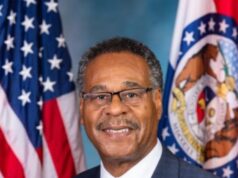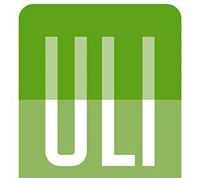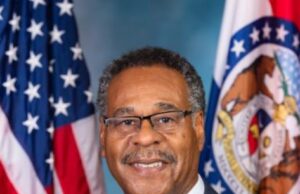EFC ACCEPTING APPLICATIONS FOR $325 MILLION IN GRANTS FOR CRITICAL WATER INFRASTRUCTURE PROJECTS
Next Grant Round Delivers on Governor Hochul’s Clean Water Funding Commitment and Launches Initiatives Announced at 2024 State of the State Address
New York State Environmental Facilities Corporation President & CEO Maureen A. Coleman today announced the application period is open for $325 million in State grants for critical water infrastructure projects. The next round of the Water Infrastructure Improvement and Intermunicipal Grant programs delivers on Governor Kathy Hochul’s clean water funding commitments announced in her 2024 State of the State address, which include a series of changes that benefit small, rural, and disadvantaged communities. This infusion of funds will continue to help make water infrastructure investments more affordable for local governments, strengthen resiliency, protect drinking water, and create jobs in the manufacturing, engineering, construction, plant operations, and related industry sectors.
“State water grants are an essential element of Governor Hochul’s comprehensive efforts to modernize aging infrastructure and uphold New Yorkers’ rights to safe drinking water and a clean, healthy environment,” President & CEO Coleman said. “These investments will help communities undertake vital projects that safeguard public health, protect our abundant natural resources, and bolster local economies.”
Complete eligibility information and application materials are available on EFC’s website at www.efc.ny.gov/wiia, where local governments may also register for a March 4 webinar to learn more about this round of funding and how to apply. Please check the website for dates of any additional webinars or other information that may be posted. Grant applications and required supporting documentation must be submitted by 5 p.m. on June 14.
EFC administers the WIIA and IMG programs in coordination with the Department of Health (DOH). The State has awarded more than $2.4 billion in water infrastructure grants through EFC since 2015.
This round boasts improvements announced as part of Governor Hochul’s 2024 State of the State address to benefit rural and disadvantaged communities, including:
- Additional benefits for rural communities. Even with extensive financial support from the State, some municipalities are left passing a large financial burden to their ratepayers. To alleviate this burden on small, rural, and disadvantaged communities, EFC is increasing awards from 25% to 50% for these communities with large projects that will overburden ratepayers. This change will support smaller communities, which often struggle with accessing clean water grants and delivering affordable projects.
- Expanding community resources to ensure equitable access to funding opportunities. Small, rural, and disadvantaged communities are particularly impacted by deteriorating water infrastructure, and often do not possess the resources and capacity necessary to advance a project for infrastructure improvement. Governor Hochul is expanding EFC’s Community Assistance Teams program that launched in 2023 to provide essential support for updating New York’s critical water infrastructure. The teams are ready to engage with any community that needs help with its water infrastructure. Communities can request a meeting, register for upcoming webinars, and learn more at efc.ny.gov/cat.
- Protecting drinking water. Continuing New York’s national leadership on addressing the threat of PFAS, Governor Hochul is increasing awards for certain emerging contaminant projects from 60% to 70% of net eligible project costs.
Department of Environmental Conservation Commissioner and EFC Board Chair Basil Seggos said, “New York State continues to prioritize clean drinking water for all communities and today’s availability of $325 million in new funding will be instrumental in supporting local projects to address emerging contaminants and other threats to public health and the environment. These investments and EFC’s ongoing assistance to smaller and disadvantaged communities in applying for funding will advance effective infrastructure improvements that bring long-lasting benefits to more New Yorkers.”
State Health Commissioner Dr. James McDonald said, “Under Governor Hochul’s leadership, the State Health Department continues to make safe drinking water a top priority for all New Yorkers. A lack of financial resources should not be a barrier to one of the most fundamentally important elements of good health – clean water. We encourage municipalities to apply for this latest round of water infrastructure funding and to utilize EFC’s community assistance program for support.”
New York’s Commitment to Water Quality
New York continues its significant investments in water infrastructure and has invested a total of $5 billion in water infrastructure since 2017. To leverage these investments and ensure ongoing coordination with local governments, the Governor launched Community Assistance Teams to expand EFC’s technical assistance program and help small, rural, and disadvantaged communities leverage this funding to address their clean water infrastructure needs. Any community that needs help with their water infrastructure needs is encouraged to contact EFC at efc.ny.gov/CAT.
The voter-approved $4.2 billion Clean Water, Clean Air and Green Jobs Environmental Bond Act is advancing historic levels of funding to update aging water infrastructure and protect water quality, strengthen communities’ ability to withstand severe storms and flooding, reduce air pollution and lower climate-altering emissions, restore habitats, and preserve outdoor spaces and local farms. Disadvantaged communities will receive at least 35% of the benefits of Bond Act funding, with a goal of 40%. Governor Hochul announced $479 million in WIIA, IMG and septic replacement grant awards in December, including the first funding awarded under the Environmental Bond Act. More than two thirds of the funding was awarded to projects serving disadvantaged communities and potential environmental justice areas, underscoring the State’s commitment to awarding grant funding to communities that need it most.
###
Contact: Heather Cameron | | (518) 402-6924
















